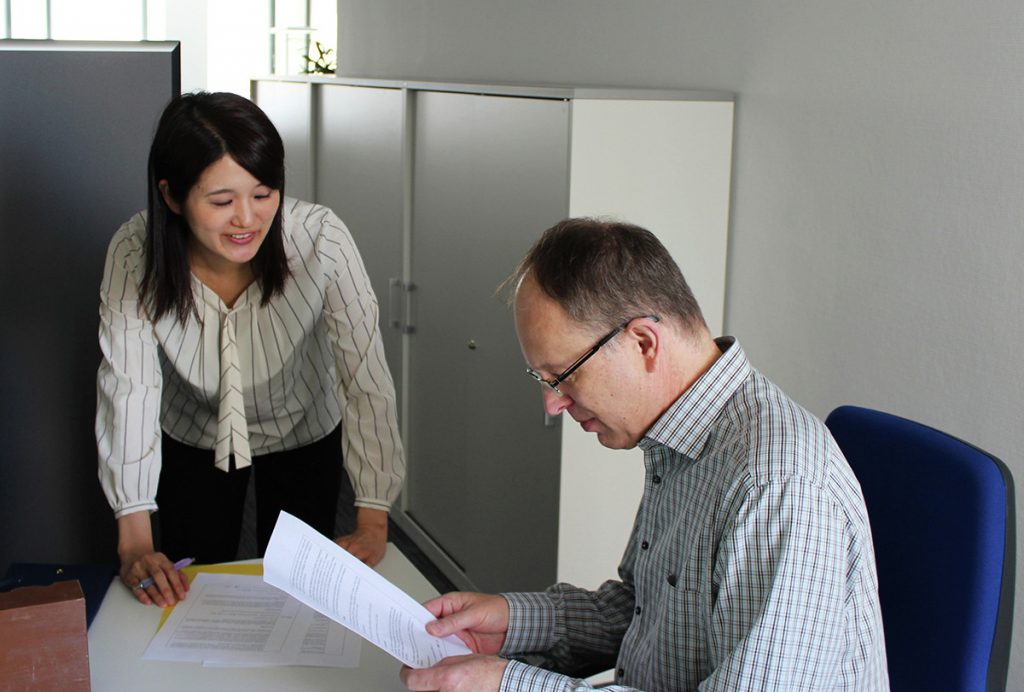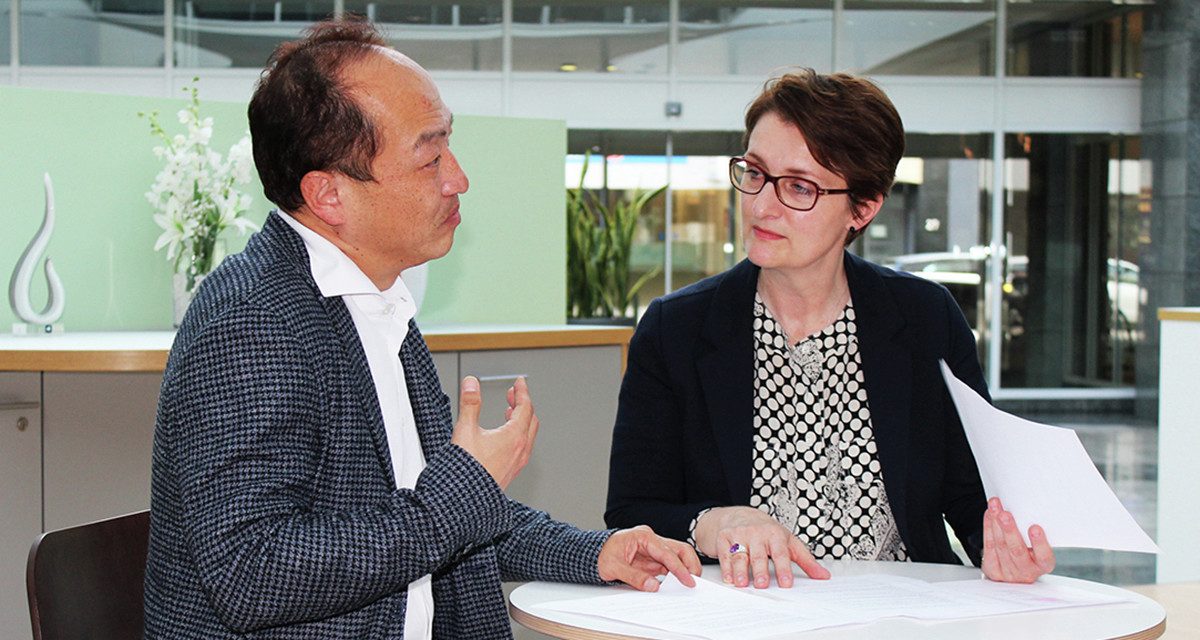Nowadays, most of the international business takes place in English. It might not be necessary to communicate in another language, but it is a sign of goodwill to understand and speak at least some words of your colleague’s first language.
The Japanese language can be quite tricky to use: It’s extremely complex and context sensitive. Even the simplest phrase can have numerous interpretations depending on who you are, who you are talking to, the situation in which it is taking place or the nature of discussion.
Although, nowadays, most Japanese have a grasp of English, and international business normally takes place in English, it’s very helpful to be able to understand and to use at least some Japanese expressions. It’s not only a matter of better communication but a sign of goodwill and respect. If you go on business trips to Japan or you work with one of your Japanese colleagues, being able to greet and thank your co-workers in their language will impress them.

Hereinafter some useful Japanese business expressions for all kind of situations are outlined. You can practise them with the help of your Japanese colleagues.
Greetings
To greet properly is one of the basic pillars of etiquette in Japan. A clearly and loudly spoken greeting in the morning or during the day will be appreciated by your colleagues and will raise the team morale.
Useful expressions:
“good morning”: ohayou gozaimasu (おはようございます)
“hello/good afternoon”: kon-nichiwa (こんにちは)
Introduction
When it comes to introducing yourself, the following two phrases are very common: ‘Hajimemashite’ means “for the first time” and can be translated loosely into “Nice to meet you for the first time.” It can be followed by a ‘yoroshiku onegai shimasu’, which refers to sentiments of gratitude, prospect and plea.
‘Yoroshiku onegai shimasu’ is a very useful expression. Translated literally, it means “please accept me”, but it can be used anytime someone is making a request.
Useful expressions:
“nice to meet you”: hajimemashite (初めまして)
“please”: yoroshiku onegai shimasu (よろしくお願いします)
End of work day
Japan is a very group oriented society. So team spirit is a key priority in the workplace.
Leaving the office before your colleagues merits an ‘osakini’, which means “before you”. It can be used as a farewell or as an apology for leaving early. It can also be used in other situations, such as when you start eating before your Japanese colleagues.
‘Otsukaresama deshita’ can be translated loosely into “I acknowledge all your hard work, and thank you for it.” It’s good practice to use it for all colleagues – no matter the position – when someone is leaving the office before you.
Useful expressions:
“goodbye” or “before you”: osakini (お先に)
“well done” or “thank you for your work”: otsukaresama deshita (お疲れ様でした)
Teamwork
As mentioned, team spirit is a key priority in Japan. Doing one’s best is considered to be crucial in the Japanese culture. Using the following two expressions ‘gambarimasu’ or ‘gambarimashou’, whenever you and your team have to do something which requires effort, will impress your Japanese colleagues and will raise the workplace spirit.
Useful expressions:
“I/we will work hard”: gambarimasu (頑張ります)
“let’s work hard” “Doing one’s best”: gambarimashou (頑張りましょう)




